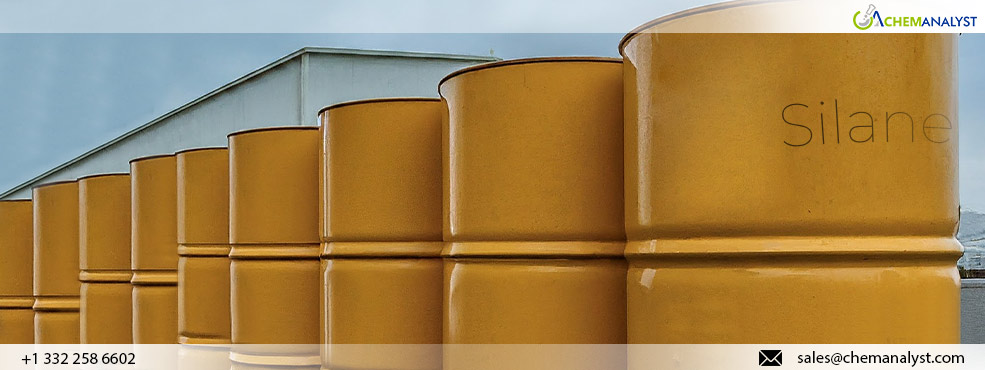Welcome To ChemAnalyst

Throughout April, the cost of Silane remained stable in the European market, despite the bearish pattern observed in the German construction sector. The German construction sector's bearish pattern indicates a lack of growth or even a decline in construction activity, which typically leads to reduced demand for construction-related chemicals like Silane.
The European market for Silane, a key chemical used in various industrial applications, is currently experiencing a scenario where supply is sufficient, but demand is weak. This imbalance has been particularly noticeable in the downstream construction sector, which has continued its sluggish trend. Additionally, the demand for Silane in the coating sector has remained poor, further contributing to the overall weak demand in the region.
German construction companies continued to experience a lack of new orders at the beginning of the second quarter. Housing activity remained the poorest-performing sector, declining sharply at a rate similar to the previous month. Further, the construction PMI month-on-month decline exhibited below threshold limits, indicating the activities of the construction sector remained sluggish which led to a decline in the consumption of products such as Silane. The German Building Materials Association, reported a 15.3% year-on-year contraction in the production of building materials in the first quarter of 2024, following a 16.7% contraction in 2023, indicating that the Silane consumption in this sector was bleak.
The lower demand for building materials and products has led to renewed downward pressure on purchase prices in the construction sector. This decrease in demand can be attributed to factors such as reduced construction activity, tight budgets in the public sector, and overall uncertainty in the housing market.
Looking ahead, constructors are generally pessimistic about the outlook for the coming year, particularly regarding housing activity and public sector spending. However, there is a slight improvement in sentiment compared to previous months, as expectations are the least pessimistic, as they have been in the past 12 months.
In conclusion, the cost of Silane in the European market is anticipated to decline this month, primarily due to the downturn in the downstream construction sector. The bearish trend in the German construction industry, characterized by stagnant or declining construction activity, is expected to result in reduced demand for Silane. This demand reduction is likely to exert downward pressure on Silane prices in the European market. Overall, the outlook suggests a challenging period ahead for Silane suppliers, who may need to adjust their strategies to navigate the evolving market dynamics.
We use cookies to deliver the best possible experience on our website. To learn more, visit our Privacy Policy. By continuing to use this site or by closing this box, you consent to our use of cookies. More info.
